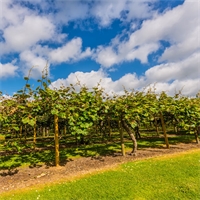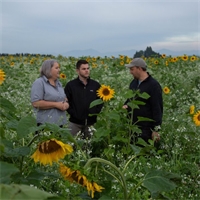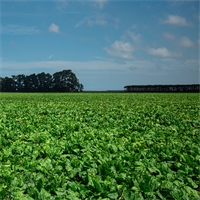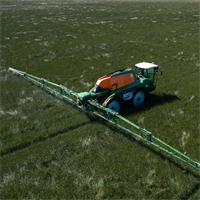03Aug
New Lincoln University research initiative seeks better use of land
New Lincoln University research initiative seeks better use of land
Words & images supplied by Lincoln University
A new Lincoln University initiative is looking to come up with new creative, innovative, integrative and adaptive agricultural systems.
The initiative, called Designing Future Productive Landscapes, is a multi-disciplinary approach, which could span the University as it seeks to find alternatives to “current and narrow models of land-use options and practices”.
Its comprehensive research programme involves projects in hill country, dryland and irrigated landscapes and will be multi-disciplinary response, integrating skills and knowledge across farming systems, ecology, landscape design, social science and other disciplines.
It is responding to the need for new ways of using land more productively while ensuring New Zealand’s future prosperity and enhancing lives.
The land-use options and practices are seen to not only limit sustainability and the resilience of landscapes and the agroecosystems embedded within them, but also constrain regeneration of land, environment and culture.
Initiative lead, Professor Pablo Gregorini, said production landscapes underpin cultures and prosperity of societies worldwide.
However, a number of transformations and pressures are affecting landscapes here and around the world, diminishing biodiversity, reducing water and air quality, and accelerating loss of soil and plant biomass (amongst other factors).
“Given New Zealand’s economic reliance on food agricultural production and provenance, our global brand, prosperity and well-being are at risk.
“We want to create adaptive agroecosystems to re-connect our landscape, our livestock (agriculture) and ourselves, by restoring broken linkages among plants, herbivores and humans with diets that nourish and satiate, as well as heal our planet,” Professor Gregorini said.
“Our objective demands a multi-disciplinary response, integrating skills and knowledge across farming systems, ecology, landscape design, social science and other disciplines.”
The initiative follows the recommendations of last year’s Transformation Board Report urging Lincoln to deliver positive changes in land, food and ecosystems.
It will involve students working in a ‘living laboratory’, ‘incubating’ ideas in the classroom that can be ‘hatched’ in the field.
The initiative involves academics from agricultural, landscape and Māori perspectives, and is the first of three to be announced this year.
Areas the initiative could address include reshaping and reimagining Māori productive landscapes that will support and sustain the mauri of te taiao (production landscapes) while continuing to grow the Māori economy.
It could also involve encouraging regional councils to develop approaches for identifying and designing distinctive ways to increase a landscape’s full range of productivity, and helping Government agencies to establish new baselines and benchmarks for monitoring landscape value and productivity.
Community and commercial sectors could also be involved to enable implementation, IP development and delivering associated social, economic and environmental value.
Potentially, the initiative could involve staff across the entire disciplinary range at Lincoln University.
Key collaborators could involve CRIs and other universities, in New Zealand and internationally, and ideas could be trialled on some of the University’s farms.
Initiative team member, Associate Professor Mick Abbott, said his main concern lay with how we can design future landscapes that better integrate the multiple ways we use and protect land for the benefit of ourselves, and the environment.
Fellow team member and Lincoln University Director Kaiarahi Māori, Dr Dione Payne, said an important aspect for her was protecting and sustaining the Mauri of te taiao.
Lincoln University Chancellor Steve Smith said Lincoln University is uniquely placed to lead the new initiative.
“In addition to the multi-disciplinary team, our network of farms allows to integrate research across a variety of landscapes.’’
Related

Covid-19 pulled the plug on the global economy with one swift yank earlier this year, and only now g...
Read More

Energy consumers have the opportunity for more choice of energy companies, thanks to the recent deci...
Read More

For Alford Forest couple Richard Morris and celebrated artist, welder, and sculptor Hannah Kidd, a s...
Read More

Transform a glass jar into a chic statement piece with this easy DIY yarn-wrapping technique.
Read More

Autumn is on its way following a favourable summer, especially for cropping farmers who have been ab...
Read More

For the next three months we will look at the following: fodder crops, pre-emergence sprays on autum...
Read More